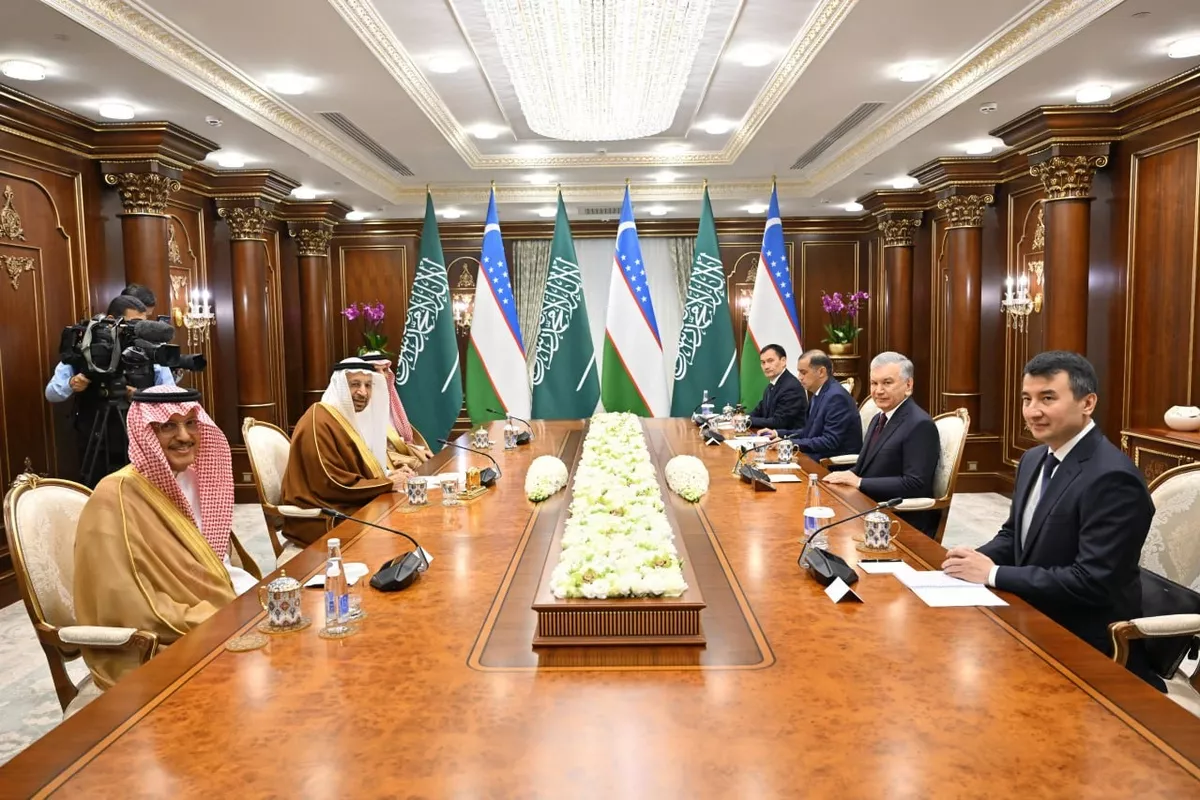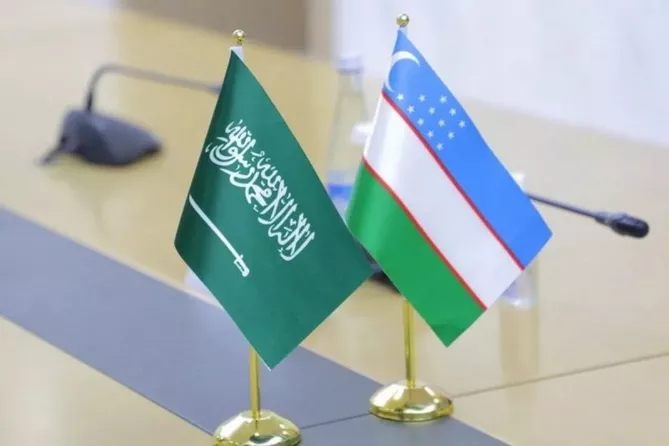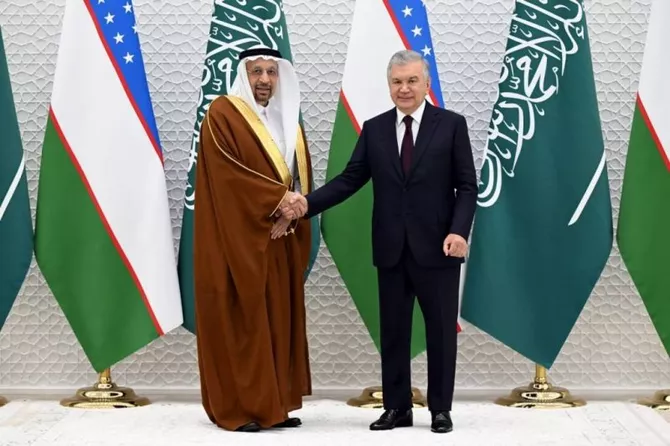
photo: Gazeta.uz
The recent meeting of the Uzbekistan-Saudi Arabia Intergovernmental Commission and Business Council in Tashkent marked another landmark moment in the evolution of bilateral relations between the two countries. Ten new agreements worth a total of $4 billion were signed, bringing the cumulative portfolio of joint initiatives to an impressive $30 billion.
What makes this figure especially significant is that, according to Uzbekistan’s Ministry of Investment, Industry and Trade, the funds do not represent sovereign loans backed by state guarantees, but rather direct foreign investment (FDI). This distinction speaks volumes, as it is a clear sign of Riyadh’s confidence in Tashkent’s economic reforms, governance, and stability.
One of the most promising initiatives set to be formalized this November is the InterHealth project, which aims to introduce a new healthcare management system in Uzbekistan. The reform is designed to reduce average inpatient treatment time from 15 to 7 days, effectively doubling the patient capacity of hospitals.
Alongside this, Uzbekistan and Saudi Arabia agreed to implement a modern management model at the branches of the Republican Specialized Center of Oncology and Radiology in Fergana and Kokand, signaling a qualitative shift in the country’s medical infrastructure.

Photo: iStock
Meanwhile, in the energy sector, Saudi Arabia’s ACWA Power continues to play a central role in Uzbekistan’s transition to sustainable energy. The Ministry of Energy announced the commissioning of the first large-scale thermal power plant, a solar power station in the Tashkent region, two major wind farms in Bukhara, and a 100 MW wind plant in Karakalpakstan.
In addition, Uzbekistan will soon launch its largest battery energy-storage system in the Parkent district.
ACWA Power’s involvement extends beyond infrastructure. It has assumed full management of the Shirin Energy College in the Syrdarya region. The company has introduced a Saudi-developed education model, including foreign-language instruction and training in modern energy technologies. As a result, the college now produces professionals not only for Uzbekistan’s domestic energy sector but also for ACWA Power’s international projects across other regions of the world.
The collaboration is expanding into new technological and industrial areas. Tashkent and Riyadh have agreed to jointly produce sustainable aviation fuel in partnership with Vision Invest (Saudi Arabia) and Air Products (USA). Meanwhile, Saudi Tabreed signed a $40 million agreement for the purchase of electric and thermal energy.
Among other strategic ventures is a project for copper production, aimed at manufacturing both high- and low-voltage cables. The company Data Volt is developing a modern data center in Tashkent, strengthening Uzbekistan’s role as a regional IT hub.
Another high-profile initiative involves the construction of a new international airport in the Tashkent region, in which a Saudi firm is participating as one of the main contractors.
These examples collectively illustrate a special format of relations between Uzbekistan and Saudi Arabia, grounded not in political symbolism but in shared strategic vision and mutual economic benefit.
The numbers tell their own story. In 2024, bilateral trade reached $143 million, while in the first eight months of 2025 it had already approached $112 million. Currently, 27 enterprises with Saudi participation operate in Uzbekistan, implementing 56 investment projects worth more than $27 billion, with $900 million already utilized this year.
It is no coincidence that during the Tashkent commission meeting, Saudi Minister of Investment Khalid Al-Falih called the relationship between the two countries “a model of interstate cooperation.” “We have no shared borders,” he said, “but we are doing far more than anyone could have imagined just a few years ago.” According to Al-Falih, Uzbekistan consistently demonstrates “a mutually beneficial approach and trust,” qualities that place greater responsibility on the Saudi side.
When meeting with President Shavkat Mirziyoyev, Al-Falih also announced that Riyadh would make a decision within two months regarding the import of Uzbek agricultural products. In turn, Mirziyoyev invited Saudi partners to participate in strategic mining and resource-development projects, further deepening long-term industrial cooperation between the two nations.

Photo: UZA
The current dynamism in Uzbek-Saudi relations dates back to President Mirziyoyev’s first state visit to Saudi Arabia in 2022, which opened a new chapter of cooperation.
Since then, both governments have created favorable conditions for closer business interaction and direct connections between leading Uzbek and Saudi producers. These steps have led to a steady expansion of joint industrial projects, particularly in high-value-added production, supported by both domestic consumption and access to regional and global markets.
Equally important, new mechanisms of financial support have been established, including the creation of investment companies and microfinance institutions in Uzbekistan - tools that provide flexibility and confidence to long-term investors.
All these factors demonstrate that the partnership between Tashkent and Riyadh has grown beyond formal diplomacy into a genuine strategic alliance, one that intertwines industrial growth, technological modernization, and human capital development.
Looking ahead, both countries are poised for further expansion. Al-Falih’s concluding words at the meeting sounded almost visionary:
“We intend to continue our cooperation with Uzbekistan at the same impressive pace at which it is growing and diversifying. We are united not only by a proud history but also by a shared vision of a prosperous future.”
It is difficult to add anything more. The relationship between Uzbekistan and Saudi Arabia is evolving not through rhetoric but through results, and its trajectory suggests that the partnership will become one of the most dynamic success stories in Eurasia’s emerging economic landscape.
Share on social media